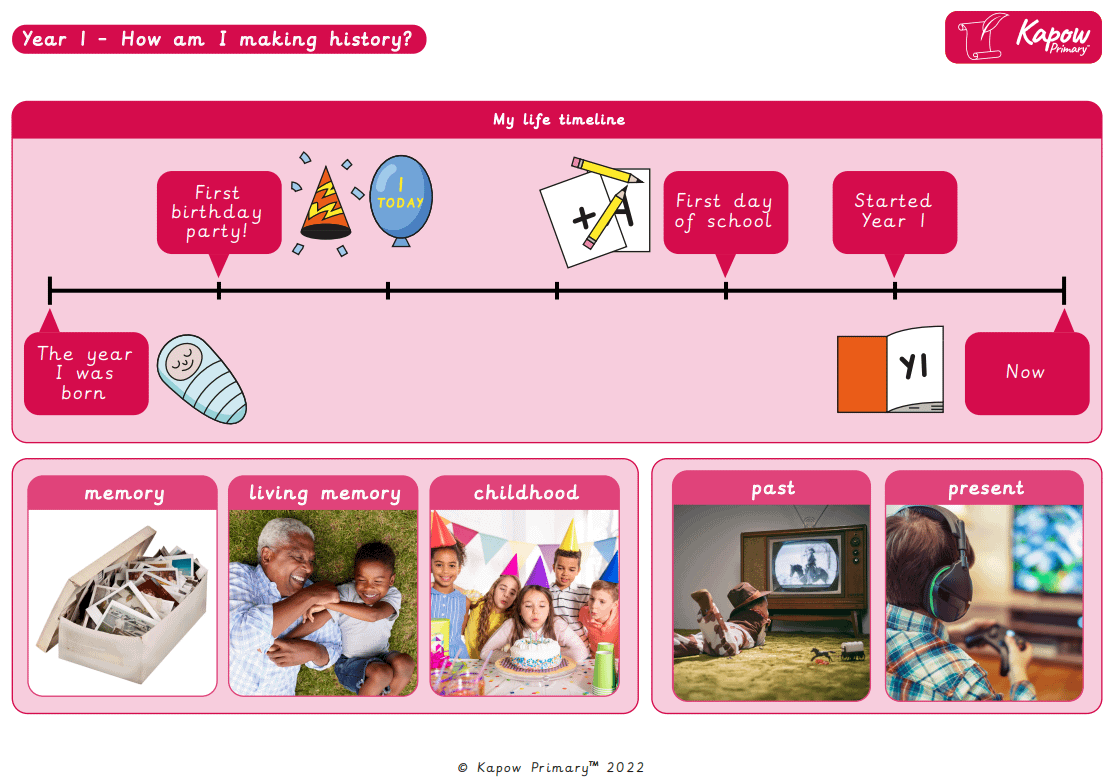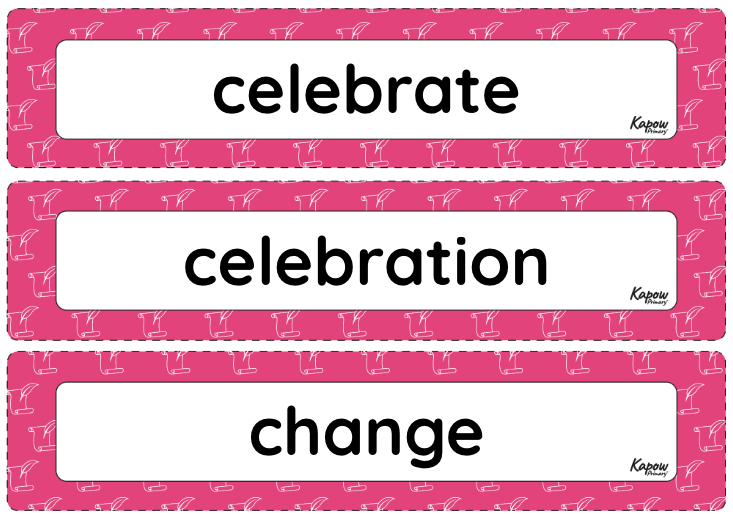How am I making history?
Use this unit hub to inform your medium-term plan and to navigate to related resources.
- Subjects >
- History >
- Key stage 1 >
- Year 1 >
-
How am I making history?
Unit outcomes
Pupils who are secure will be able to:
- Order three photographs correctly on a simple timeline.
- Use the terms ‘before’ and ‘after’ when discussing their timelines.
- Talk about three memories and place one of them on a timeline.
- Explain why memories are special and name four events that they celebrate throughout the year.
- Think of three ways they celebrate their birthday.
- Ask a visitor one question about childhood in the past.
- Know a similarity and a difference between childhood now and in the past.
- Add three ideas to a time capsule about themselves.
- Use key vocabulary to compare the present, the past and possible changes in the future.
Suggested prior learning
Adventures through time
Get startedLessons
Lesson 1: What is my history?
- To develop an understanding of personal chronology.
Lesson 2: How can I find out more about myself?
- To learn more about my history.
Lesson 3: How are special events remembered?
- To explore how we remember events.
Lesson 4: What was it like for children in the past?
- To find out what childhood was like for our parents and grandparents.
Lesson 5: What have I learnt about childhood in the past?
- To compare childhood now with childhood in the past.
Lesson 6: How am I making history?
- To identify that some things change and some things stay the same.
Key skills
Related content
Unit resources

Knowledge organiser – History Y1: How am I making history?
Aimed at pupils, a single page document that gives key facts and definitions from the 'How am I making history?'…

Vocabulary display: How am I making history?
A display version of the key vocabulary from the How am I making history? unit.
Cross-curricular opportunities
RSE & PSHE
‘Pupils should know:
- that families are important for children growing up because they can give love, security and stability.’
See PSHE Association guidance.
Art and design
‘Pupils should be taught:
- to use drawing, painting and sculpture to develop and share their ideas, experiences and imagination.’
See National curriculum - Art and design key stages 1 to 2.
Mathematics
‘Pupils should be taught to:
- recognise and use language relating to dates, including days of the week, weeks, months and years.’
See National curriculum - Mathematics key stages 1 to 2.
English
‘Pupils should be taught to:
- ask relevant questions to extend their understanding and knowledge.’
See National curriculum - English key stages 1 to 2.
British values: Tolerance of different faiths and beliefs.

